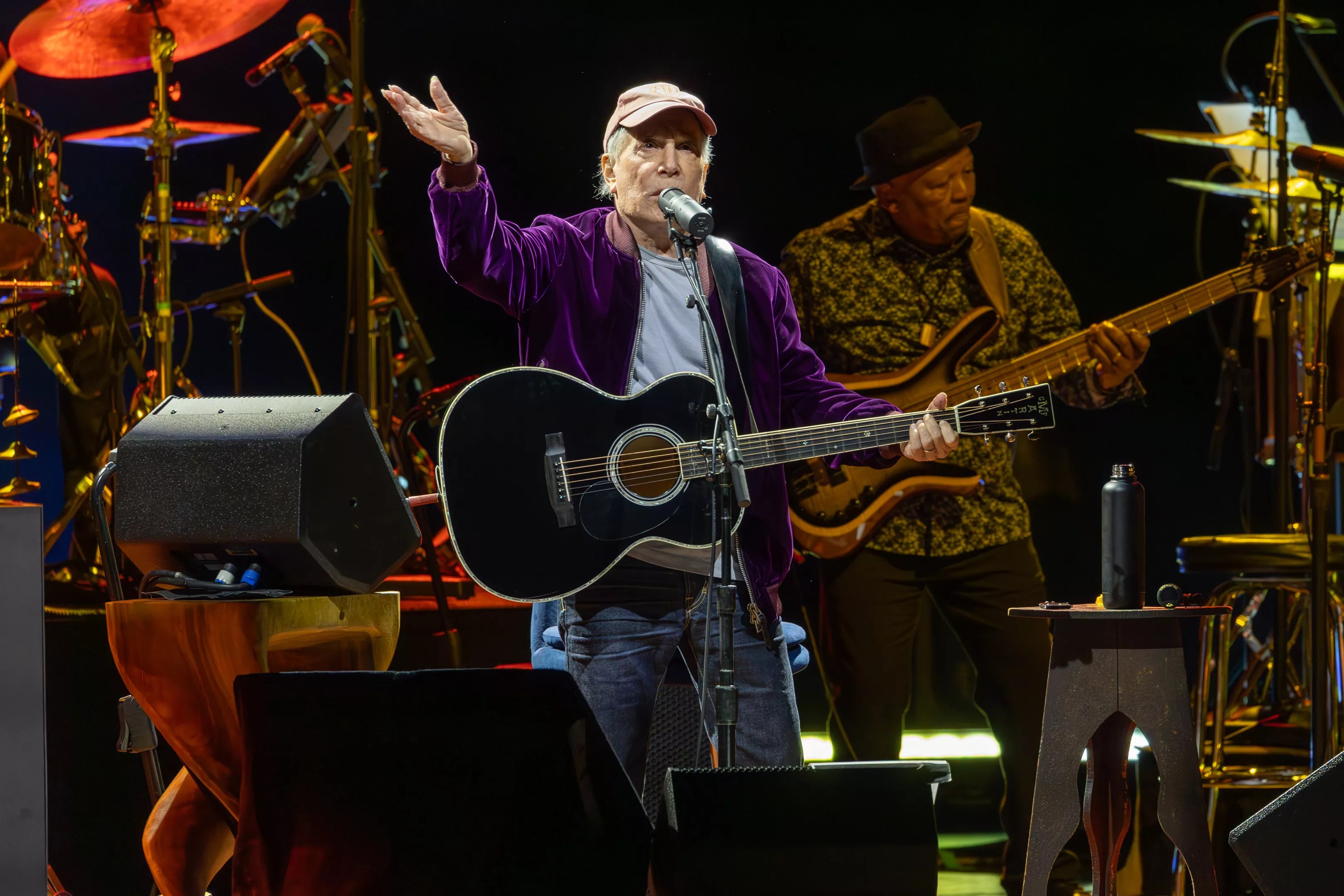
Andrew Sherman

Audio By Carbonatix
No one tells you about the loss of control.
It’s gradual, sure, and not everyone experiences the same slow seeping of autonomy as age advances, but nevertheless, somehow, in some way – everyone loses control as they grow old.
Maybe your eyesight starts to go, or your mind isn’t as sharp as it once was, or your hearing deteriorates – to say nothing of bearing witness to the struggles of your loved ones as they, too, contend with mortality.
To push back against nature, to defy the ravages of time – to stand in the breach and cry, “Wait!” – takes an enormous amount of courage. Or perhaps hubris. Or maybe simply stubborn determination.
Watching Paul Simon seated on stage amid a gaggle of musicians Wednesday, May 7, inside the Winspear Opera House, performing the first of two concerts here, was to behold an artist who already walked away once, too much fanfare, seven years ago – his farewell tour stopped by the American Airlines Center in the summer of 2018 – yet, perhaps spurred by his most recent album, Seven Psalms, felt as though there was unfinished business to conduct.
“I’m very happy to be here tonight and very grateful,” Simon said as he took the stage. “This tour is my first opportunity to play with my band since pre-COVID. I’m enjoying it immensely. … I hope you enjoy yourselves.”
Dubbed “A Quiet Celebration,” in part because of its acoustic presentation and in part acknowledging Simon’s unavoidable shift to altering his performing style, accommodating a hearing loss that nearly ended his career, but against which he battled back to perform for roughly 110 minutes.
His voice, a quicksilver tenor as pliable as a reed, has thinned and frayed and lost some of its punch, but in the moments when it mattered, Simon is still capable of delivering transcendence.
Wednesday’s showcase was split in two. The first half, which ran about 35 minutes or so, was comprised entirely of the song cycle (the album feels a bit too programmatic) Seven Psalms, the inspiration for which Simon says came to him in a dream. It’s a meditation which, despite its title, is far more preoccupied with earthbound concerns – as if Fat Charlie the Archangel was staring down the end of his life, and understood no number of pithy one-liners could save him.
Seven Psalms doesn’t offer solace in the way so many of Simon’s records can, with easy melodies or elegant lyrics. These songs (movements, really) – “Love is Like a Braid,” “Your Forgiveness” or “The Sacred Harp” – are blunt and simple, given to moments of beauty as fleeting as a shooting star. On stage, Psalms was opened up and allowed to breathe, making a deeply interior record more accessible. “The Lord” remains a stirring refrain, returning to punctuate the composition at various intervals: “The Lord is the face in the atmosphere / The path I slip and I slide on.”
Simon was aided by an extraordinary collection of musicians, all of whom seemed to function as a single unit: Caleb Burhans on viola, Jamey Haddad on percussion, Gyan Riley on guitar, Mick Rossi on piano, Andy Snitzer on saxophone, Bakithi Kumalo on bass, Nancy Stagnitta on flute, Mark Stewart on guitar, Eugene Friesen on cello, and Steve Gadd and Matt Chamberlain on drums. Riley and Stewart, in particular, were phenomenal, teasing out guitar lines that augmented Simon’s own infrequent picking and strumming.
That so many players could bring such nuance and carefully considered detail without overwhelming Simon’s weathered but sturdy voice was remarkable – the exotic “Trail of Volcanoes” percolated with intoxicating textures, while “Wait” and “The Sacred Harp,” both of which featured Simon’s wife, Oak Cliff native Edie Brickell, seemed to rise and fall like breathing.
The stage was minimally dressed, placing the focus squarely on the music being made. A postage stamp-sized video screen sat above the players and, during the first set, flashed the titles of the songs as the music ebbed and flowed from one composition to the next. That presentation, coupled with the audience’s lovingly rapt silence, made the evening feel, initially, like more of a recital than a rock concert.
That decorum did not hold. The second half of the evening, which commenced after a 20-minute intermission, was far more familiar, as Simon, now clad in a cap and casual jacket, drew down on a half-century of pop songwriting, reaching as far back as 1964, for “The Sound of Silence,” the night’s final tune.
In between, he dipped into his catalog for the familiar – the audience’s pleasure at hearing familiar melodies was audible Wednesday – taking “Graceland,” “Slip Slidin’ Away,” or “Mother and Child Reunion” and bending them just slightly to find new angles to consider.
Elsewhere, he made a case for the brilliance of Hearts and Bones, perhaps one of his more misunderstood and maligned albums, showcasing three different tracks, including the elegiac “Train in the Distance.” Before performing “Spirit Voices” from 1990’s Rhythm of the Saints, something Simon allowed he was doing “with some trepidation,” he singled out 82-year-old Brazilian singer-songwriter Milton Nascimento, who was in the audience, with whom he collaborated on the song some 35 years ago.
Indeed, the songs themselves stood as monuments to endurance, all of them as lively and provocative now as they were upon release: “Here’s a song from back in the day – well, they’re all from back in the day,” Simon joked before “Homeward Bound.”
Brickell rejoined Simon for a duet on “Under African Skies,” receiving a far rowdier response than during the first set, in which, clad in white, she simply materialized on stage to join the gathered musicians. Before “Skies,” Simon acknowledged Kumalo as “the last surviving member of the original Graceland band,” ignoring, perhaps, that he, too, still lives.
The night’s emotional apex, however, came during “The Boxer,” one of the most indelible songs Simon ever wrote – and given the man’s output, that’s saying something. The audience, at Simon’s prompting, took up the chorus’s “lie-la-lie” harmonies, reverently singing alongside the maestro, as the immortal lines floated out into the darkness: “I am leaving, I am leaving / But the fighter still remains.”
The throughline was evident – a path upon which Paul Simon has slipped and slid for the better part of six decades, but which, undaunted, he continues to walk, a seeker yearning to understand, an artist unwilling to cede control, a man conjuring meaning out of nothing more than words, melody and rhythm.
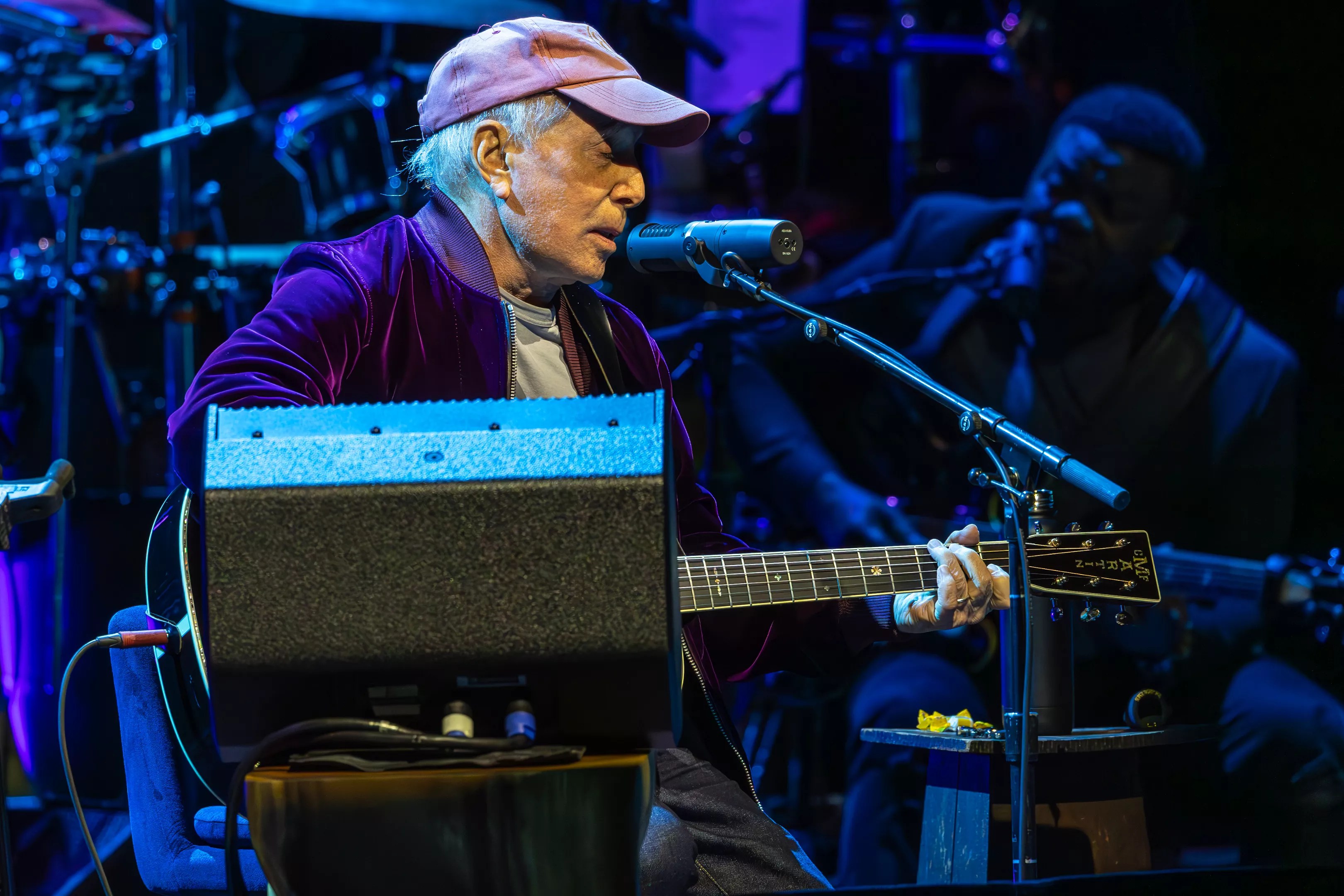
This was Paul Simon’s first performance in Dallas since 2018.
Andrew Sherman
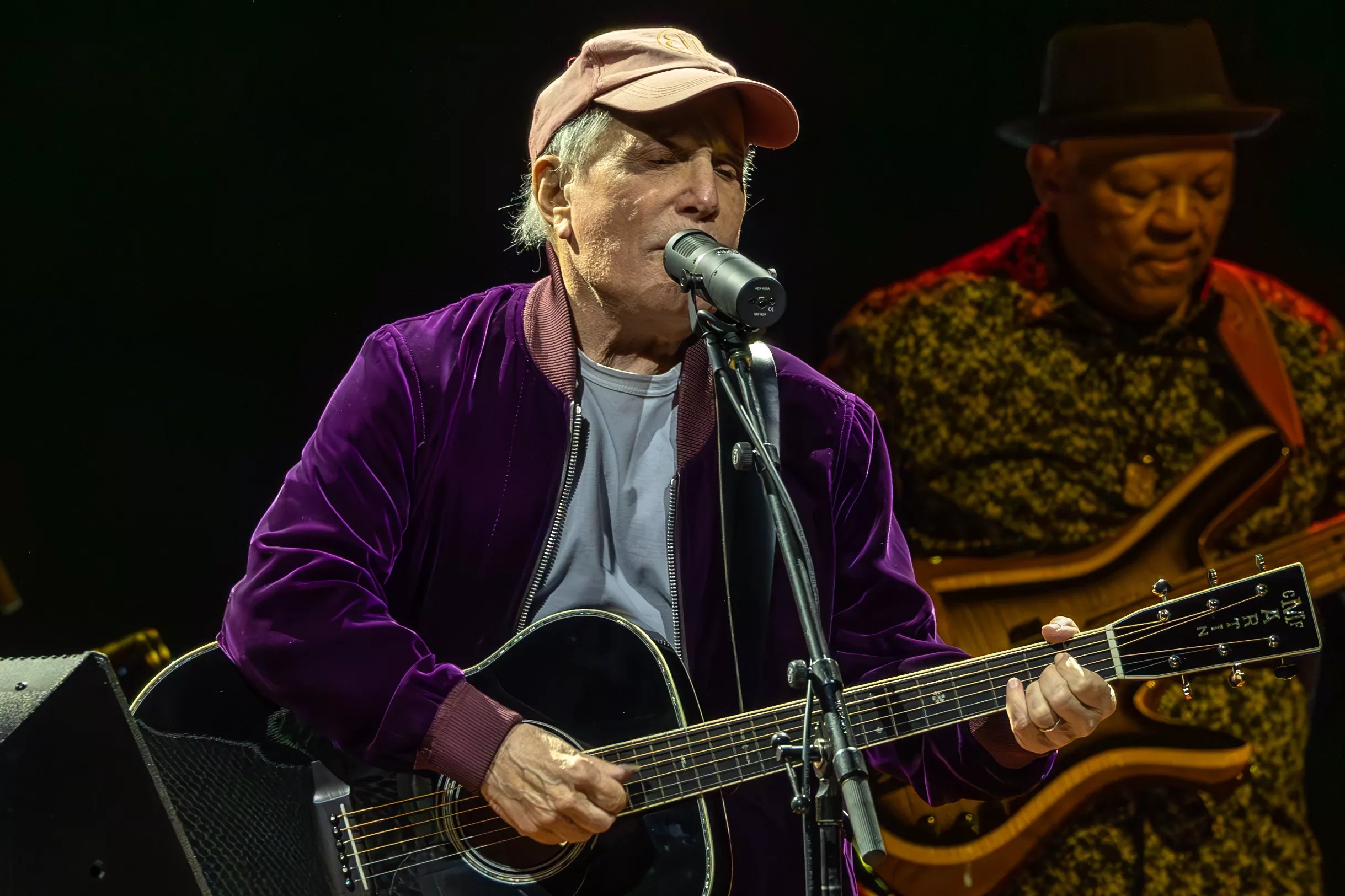
At 83, Simon’s voice resonated with clarity and emotion, delivering both newer peices and timeless classics.
Andrew Sherman
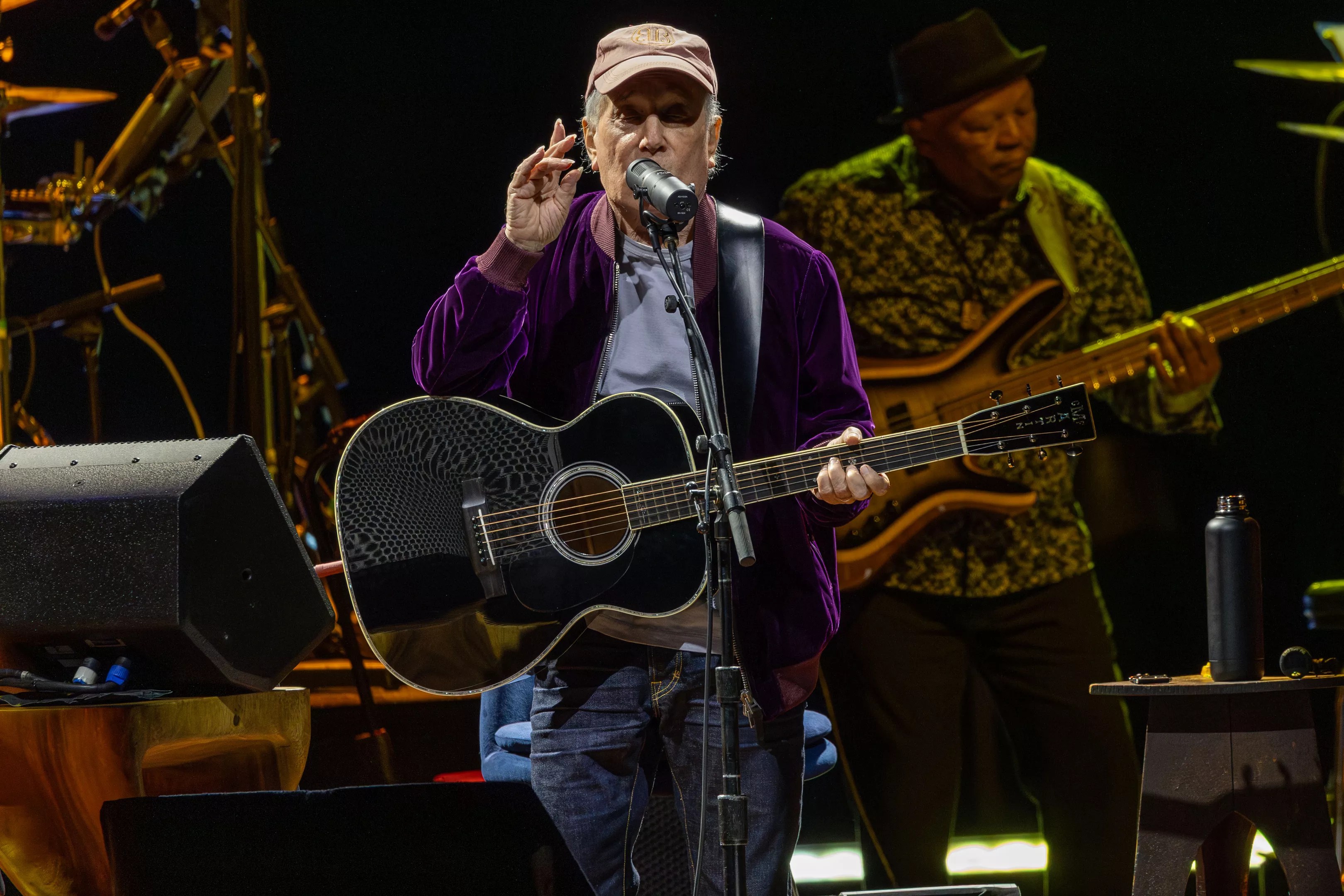
Simon was as much a conductor of an orchestra as he was the frontman of a band last night.
Andrew Sherman
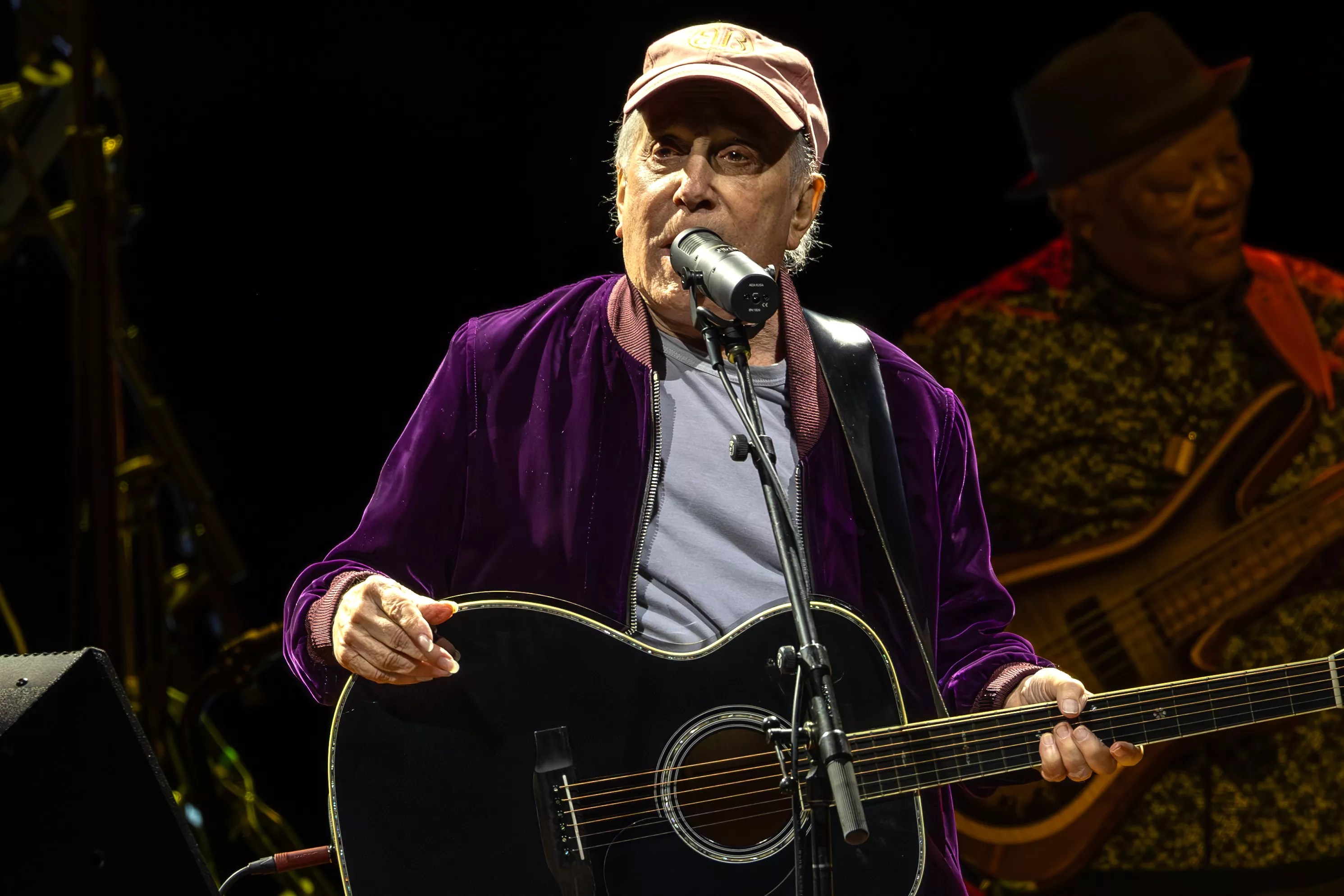
Simon is a true living legend. He has 16 Grammy Awards and has been inducted into the Rock and Roll Hall of Fame twice and the Songwriters Hall of Fame.
Andrew Sherman
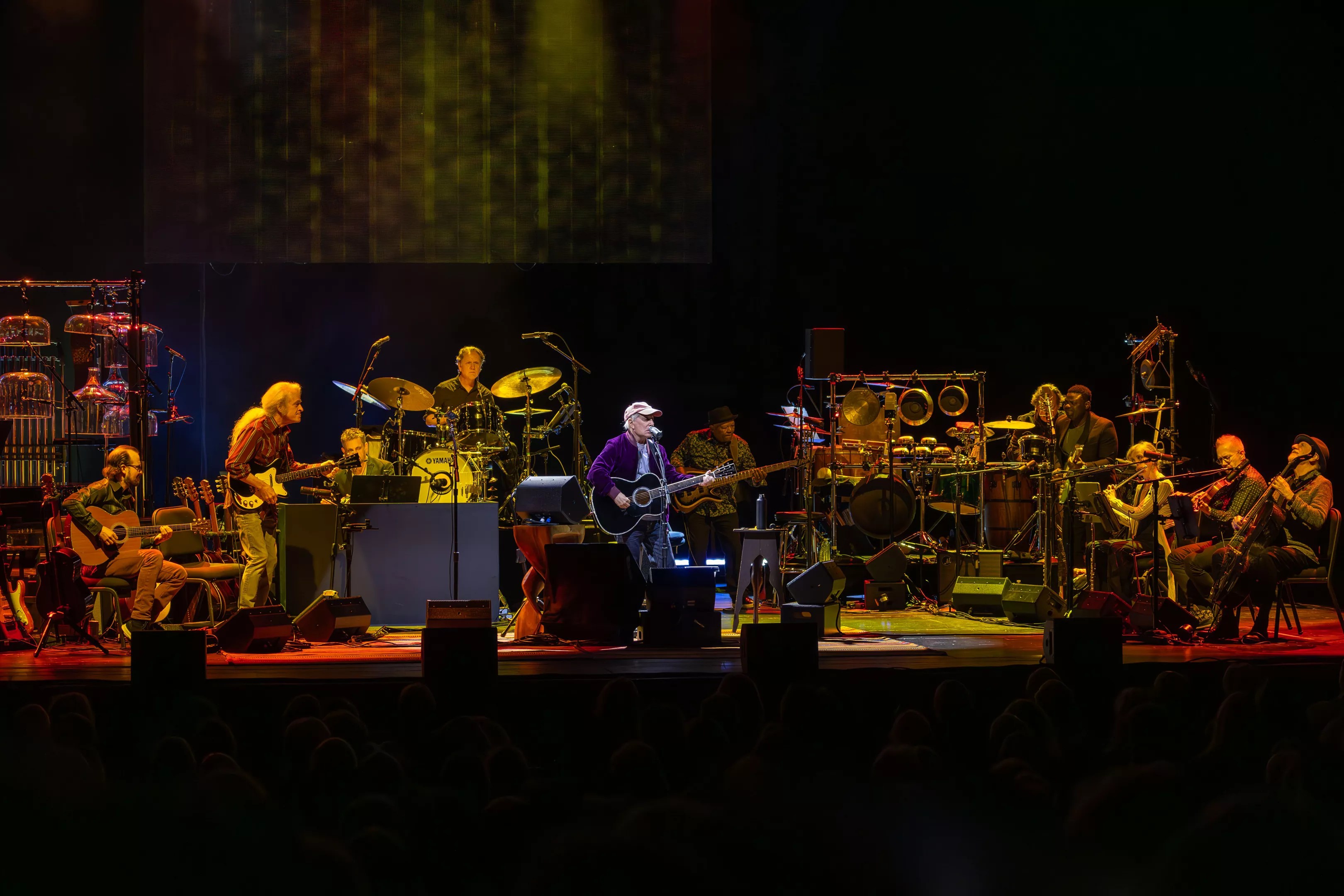
Paul Simon was thrilled to be performing with his first tour with his full band since before the COVID lockdown.
Andrew Sherman
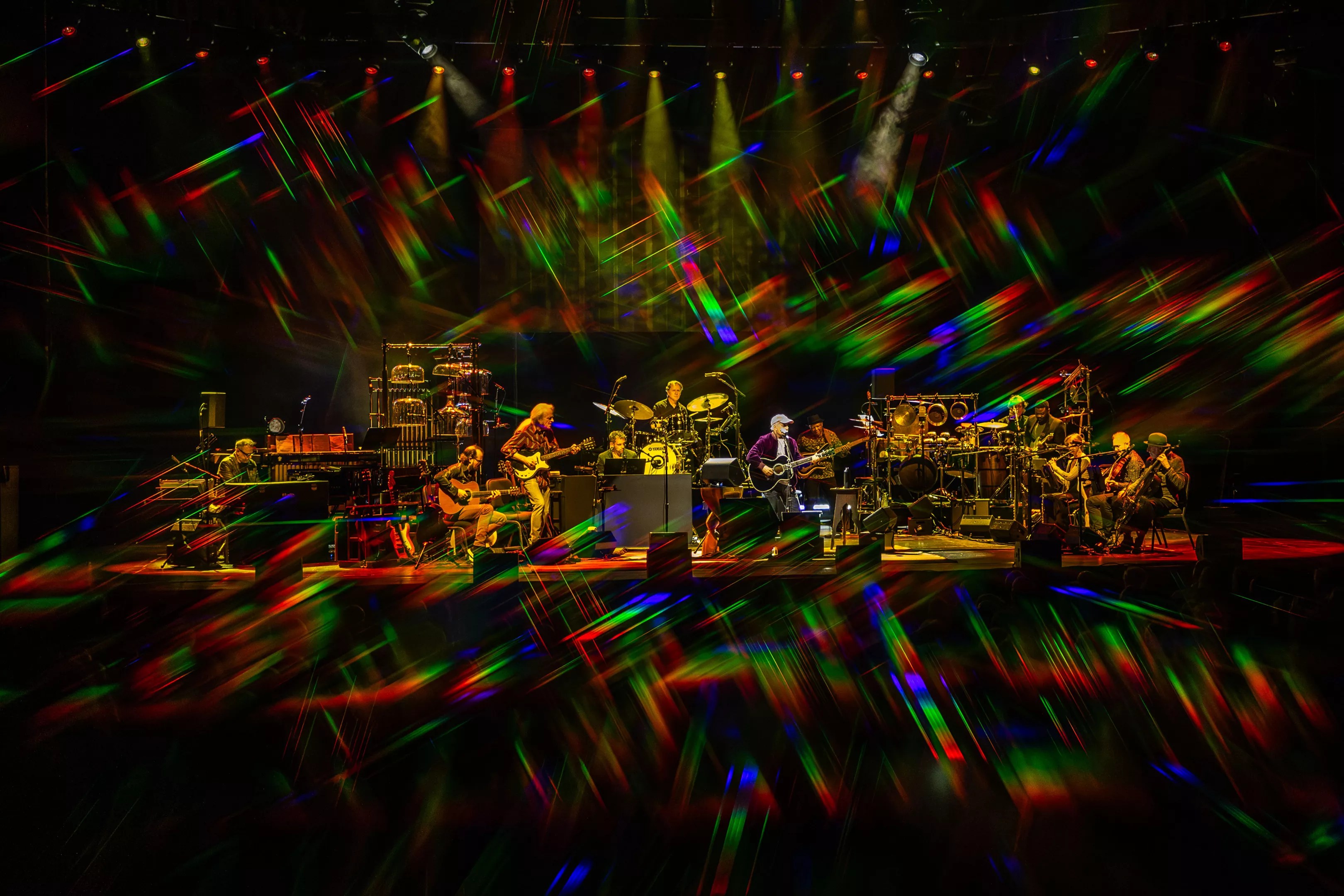
The instrumentation was an abundance of riches, with some of the most amazing performers subtly backing up Simon and his beloved compostions.
Andrew Sherman